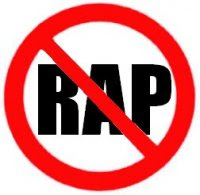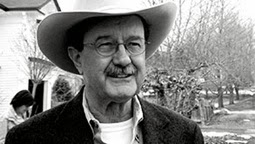More and more States are changing the dates for this event, choosing to move up in the schedule. California, a huge State with a large amount of delegate points up for grabs, will have a big impact on the political landscape because of the change.
But if States begin competing for early slots and choose to have their Primary events at or around the same date, it creates a serious problem. This creates a situation where the nominees will be determined after only 1 or 2 huge Primary election events scheduled close together in the beginning. This doesn't leave much time for the American public to hear the positions of the candidates and make an informed decision. It also does not allow candidates to rebound at the end and compete on a more level playing field (although one really never existed even under the old Primary system).
The Primary election season is supposed to have several events scheduled far enough apart to allow the candidates to keep up (or have a chance to come from behind) and to allow the public to see the candidates several times & learn about their policy positions. The new schedule will mean that the nominee will already be determined by February.... rather than at a much later time in the season. Having all of the big events scheduled early basically means that the Primary season has been shortened. No other Caucus' or voting dates will matter, after the first few weeks of this newly designed season. Eventually, voters in the smaller States will start to stay home rather than participate. Therefore, this will be detrimental to Democracy. A Democracy killer really.
This will also mean that the big money celebrity candidates will have an even bigger advantage, because whoever has the clout (name recognition and Hollywood status) to raise millions of dollars at the beginning will likely be the winner. Other candidates won't be able to raise money later in the process and come from behind based on their message. This new process may be a good way to determine who the best fundraisers are or who the biggest celebrities are. But it's a terrible way of choosing the best person for the job of President of the United States.
This just makes it more likely that we will end up with people like George W. Bush & Hillary Clinton in the future ("Rock Star" figurehead candidates- carried to Fame by their surnames- who are able to raise lots of money for themselves and their respective Political Parties), rather than people like Tom Vilsack or John Kerry, who have proven leadership qualities and could bring considerable experience to the job.
Here is a great commentary on this issue....
The presidential primary schedule has lost any semblance of sense
March 18, 2007
Both major parties ought to be able to see by now that the presidential nominating process is falling apart and needs major revision.
States are competing to ridiculous lengths to hold earlier primary contests so their concerns will be relevant to the process and their citizens will have an opportunity to meet the candidates.
That's why California has moved its primary up to Feb.5, and 22 other states may join it. That means that almost half the states will have had their presidential nominating contests by early February.
Not to be outdone, the South Carolina Republican Party may move its primary, scheduled for Feb. 2, even earlier, maybe even into this year. The party chairman said he'd hold it on Halloween if he had to in order to be the first in the South. If so, other states may respond.
Enough!
This has gotten ridiculous. And there is more at stake than state pride or the ability to influence the national selection process.
This contest is hurting the nation's ability to properly select the best nominees to represent each party.
If most states have already made their choice by Feb. 5, the race will be much different than it has been in the past. Traditionally, candidates have had to rely on speeches and face-to-face politics in small states like New Hampshire and Iowa. Under the system evolving for next year, they will have to rely on their ability to raise massive amounts of money now in order to buy extensive media campaigns in 25-30 states early next year.
Pushing the process earlier and lumping many states together at these earlier dates will emphasize the need for early celebrity status and money raising. It will push to the side matters of policy and real leadership ability.
Party members may be surprised by March to find that the person who has already secured their party's nomination advocates an agenda they don't like, but it's too late to do anything about it. And the nominations are likely to be locked up when only half of the nation has had a chance to vote.
This problem has been developing for years, but the parties have been unwilling to work together to fix it. A workable solution was posed years ago and should be adopted now.
The parties should jointly schedule an early round of primaries in the smallest states, where candidates could campaign and build support without raising large amounts of money. The next round of primaries would include small to mid-range states, and the next round would involve larger states, holding the biggest states for the last round of primaries. This would ensure a sensible process, reducing the need for early, massive fundraising. It would ensure that nominees are not chosen until most of the nation has had a chance to vote.
National party leaders must recognize that the process has gotten out of hand and work together to restore order and a more deliberative nature to the primary schedule.
Source
-------------------
Related NPR story














No comments:
Post a Comment